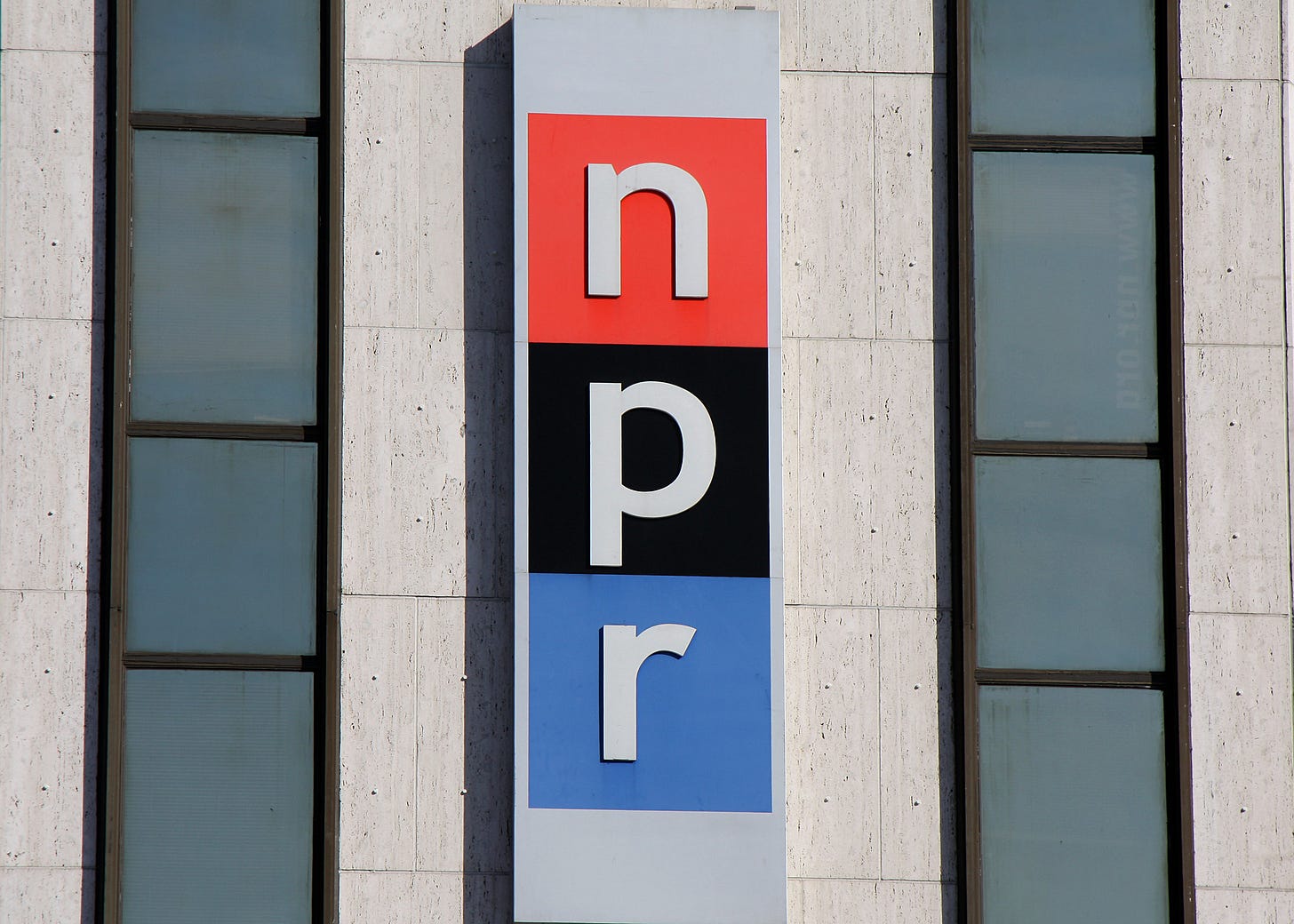Confessions of an NPR Editor
NPR, once a bastion of great journalism, has become a hotbed of groupthink, political hysteria, and advocacy “journalism.” How did this happen?

The Free Press continues its winning streak.
The online media company launched by Bari Weiss and Nellie Bowles after Weiss was unceremoniously jettisoned by the the New York Times has been producing hit after hit in recent weeks. (Okay, technically Weiss resigned from the Times, but her treatment warrants my description.)
The latest one comes from Uri Berliner, an NPR editor who spent 25 years with the organization who confesses that he’s exactly what you’d expect an NRP editor to be.
“I’m Sarah Lawrence–educated, was raised by a lesbian peace activist mother, I drive a Subaru, and Spotify says my listening habits are most similar to people in Berkeley.
I fit the NPR mold. I’ll cop to that.”
This is why Berliner’s confession is generating so much buzz. In the article, which no fewer than four people sent to me this week, Berliner admits that all of your worst suspicions about NPR are true.
“It’s true NPR has always had a liberal bent, but during most of my tenure here, an open-minded, curious culture prevailed. We were nerdy, but not knee-jerk, activist, or scolding.
In recent years, however, that has changed. Today, those who listen to NPR or read its coverage online find something different: the distilled worldview of a very small segment of the U.S. population.
If you are conservative, you will read this and say, duh, it’s always been this way.
But it hasn’t.”
In short, NPR, once a bastion of actual journalism, has become hotbed of groupthink, political hysteria, and advocacy “journalism.”
So what changed? Like many other news organizations, NPR was broke by Donald Trump, Berliner suggests.
“Like many unfortunate things, the rise of advocacy took off with Donald Trump. As in many newsrooms, his election in 2016 was greeted at NPR with a mixture of disbelief, anger, and despair. (Just to note, I eagerly voted against Trump twice but felt we were obliged to cover him fairly.) But what began as tough, straightforward coverage of a belligerent, truth-impaired president veered toward efforts to damage or topple Trump’s presidency.
Persistent rumors that the Trump campaign colluded with Russia over the election became the catnip that drove reporting. At NPR, we hitched our wagon to Trump’s most visible antagonist, Representative Adam Schiff.
Schiff, who was the top Democrat on the House Intelligence Committee, became NPR’s guiding hand, its ever-present muse. By my count, NPR hosts interviewed Schiff 25 times about Trump and Russia. During many of those conversations, Schiff alluded to purported evidence of collusion. The Schiff talking points became the drumbeat of NPR news reports.
Glenn Greenwald hit the nail on the head in describing Berliner’s article.
This article -- by a liberal long employed at NPR -- describes what happened in most media outlets since Trump's election: they explicitly renounced any journalistic function in favor of becoming political activists in defense of what they see as a greater cause than journalism.
Greenwald is right, but Berliner points out that NPR’s journalistic failure goes beyond mere partisanship. He explains what did not happen at NPR after its crusade against Trump fizzled.
“…when the Mueller report found no credible evidence of collusion, NPR’s coverage was notably sparse. Russiagate quietly faded from our programming.
It is one thing to swing and miss on a major story. Unfortunately, it happens. You follow the wrong leads, you get misled by sources you trusted, you’re emotionally invested in a narrative, and bits of circumstantial evidence never add up. It’s bad to blow a big story.
What’s worse is to pretend it never happened, to move on with no mea culpas, no self-reflection.”
That’s exactly what NPR did, however.
I’d encourage people to read the entire article to better understand the culture Berliner describes.
Readers know I have my own beef with NPR’s editorial judgment, but the truth is the problem goes well beyond NPR. Media institutions have forgotten their true purpose, which is to hold those in power accountable, not to clean up after them.
Until they remember that purpose, you can expect the decline in media to continue.


As a few of the commenter on The Free Press pointed out, this all started way before Donald Trump. This is the product of our education system. It has taken decades to cultivate this mindset.
I caught the author's bias when he explained his opinion that this started with among other things a "truth- impaired president". What president hasn't lied to us?
It will take decades to fix the problem with journalism. Diversity of thought is not the diversity NPR or others want.
Isn't he the maverick. As a radio guy why didn't he mea culpa the npr voice. It needs to be overhauled. They all sound like what he describes himself as, smug upper class coastal. His bottom line: "Defunding isn’t the answer. There’s still a need for a public institution blah blah blah." Sure the "fractured" country still needs you to unfracture us and we should all pay your salary.